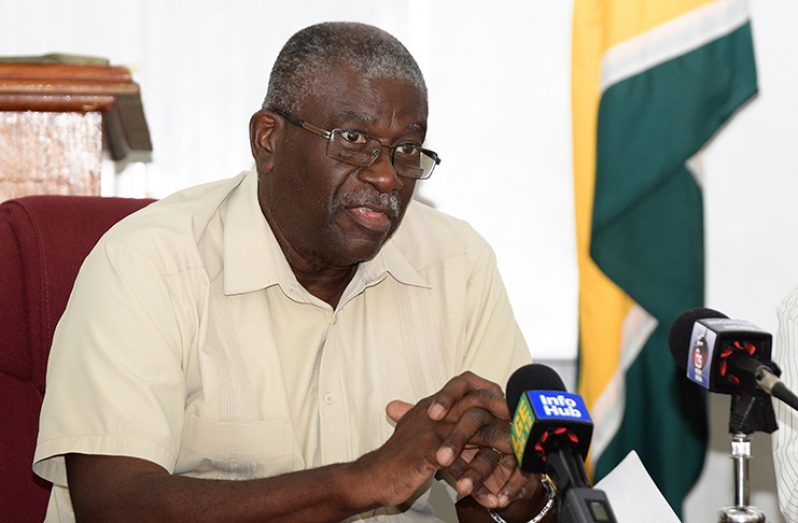…focus to be on developing local sector
GUYANA will be hosting the ninth biennial beekeeping congress from November 19 to 23 under the theme: “Natural Beekeeping for a Green Caribbean.”
At a simple launch held at the Ministry of Agriculture’s boardroom, Chief Executive Officer (CEO) of the Guyana Livestock Development Authority (GLDA), Nigel Cumberbatch said that there is much scope for the agricultural sub sector to develop. He said that according to the information he received, Guyana imports about the same amount of honey that it produces and that should not be in the coming years.
“We have an industry that has the ability to grow and there’s that market that we can attain by growing,” he said. “We must push production… we have a market right here and we should be able to satisfy that market.”

Locally, beekeeping businesses produce honey and other products on a small-scale basis. But according to Cumberbatch, now is the time to expand and commercialise. Expansion of apiaries and diversification of products can be had as part of the overall developmental thrust in society, he suggested.
Additionally, he noted that while the highest producing apiaries are on the coast, hinterland areas show great potential and can be developed so that persons may become self-sufficient. He specifically pointed out women’s groups and schools that can benefit from revenues.
Moreover, this congress also provides an opportunity for the regional beekeeping community to address the challenges and opportunities facing the sector. Importantly, at the launch, President of the Georgetown Chamber of Commerce & Industry (GCCI), Deodat Indar highlighted the ban on the transshipment of Guyana’s honey through Trinidad.
This ban has been a law for over 80 years from 1935, but its amendment was only sporadically raised at CARICOM meetings. At the recent signing of a Memorandum of Understanding (MoU) on Energy Sector Cooperation between the two countries, the Trinidad and Tobago’s Prime Minister seemed optimistic that the discrimination against Guyana’s honey would be removed, once the entry of Guyana’s honey would in no way affect Trinidad’s biodiversity. This is still to come to fruition
Indar assured that the chamber will keep up the fight against this ban and assured the GGCI’s support for the subsector. And while Cumberbatch stressed that production in the sector needs to be upped, Indar was of the view that if jobs are to be created in the sector to foster the growth of the sector, then focus must be placed on creating revenue.



.jpg)











